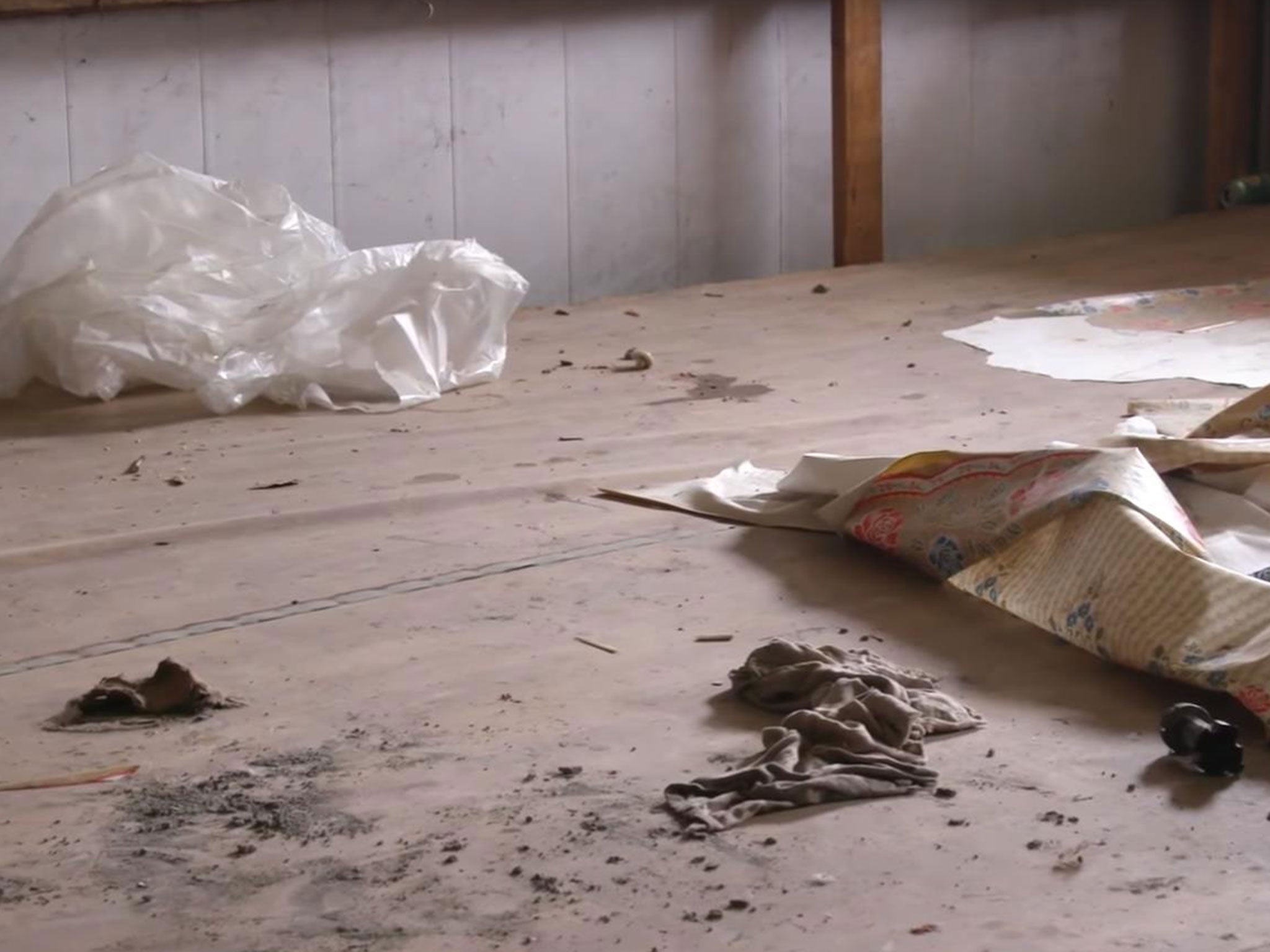Chechnya gay purge: Footage taken inside prison shows where men were 'detained and tortured'
Warden claims police wouldn't 'even want to touch...let alone beat' gay people

The warden of a Chechen prison alleged to be one of the locations where gay men were detained and tortured by police has claimed his officers would “not even want to touch such people”.
Ayub Kataev, head of the ministry of internal affairs for the town of Argun, showed a team from Vice News around its now abandoned police facility in an attempt to disprove the alleged abuse of more than 100 men.
“Imagine if there are gays - would we, the Chechens, communicate with them at all?” he asked.
“My officers would not even want to touch such people - if they exist - let alone beating or torturing them.”
Mr Kataev was filmed asking police officers standing on parade whether he had ordered them to arrest or torture gay people, with the recruits shouting “no” in response.
Footage showed footprints on the floor of the abandoned facility, where empty rooms were filled with broken glass and furniture.
Alleged victims told researchers at the Russian LGBT Network, Human Rights Watch (HRW) and newspaper Novaya Gazeta that Argun was among the locations where they were detained, beaten and given electric shocks after being kidnapped on suspicion of being gay.
News of the disappearances provoked global outcry earlier this year, prompting a rare pledge of a formal investigation from the Kremlin.
Officials in Chechnya, a federal subject of Russia, have denied the reported “gay purge” and repeatedly claimed that there are no LGBT people in the predominantly Muslim republic.
Kheda Saratova, Chechnya's Human Rights Commissioner and government advisor, claimed she had seen no evidence of the alleged persecution.
“I have never seen a single gay and none have ever brought me a statement, or even a verbal complaint, how can I confirm they exist?” she told Vice News.
“If they exist of course I will help them if they come to me.
“But today if there was a member of the LGBT community, this person, knowing our traditions, could have simply gone to a train station, purchased a ticket and left without announcing it.”
Vice said its access to authorities and Argun prison was brokered through regional authorities “keen to demonstrate their innocence” and that journalists were closely monitored throughout their stay.
Tatiana Lokshina, the Russian programme director at HRW, said reports of new abductions had stopped, suggesting that international pressure has worked.
The organisation said men were rounded up in February and April, being tortured into confessions, humiliated, starved and forced to hand over information about other men who might be gay.
Police allegedly returned of the men to their families, exposing their sexual orientation and indirectly encouraging their relatives to carry out “honor killings”, causing many to flee to Russia still fearing retribution.
“Magomed,” one of the purge victims, told HRW: “They have long arms and they can find me and the others anywhere in Russia, just give them time.”
Chechnya is also alleged to have used torture and secret detention centres against suspected insurgents, political dissidents and drug users in previous crackdowns.
British MPs discussed the campaign in the House of Commons in April, with the Government urged to send the “strongest possible siren message” to Russia, which itself adopted an anti-LGBT “propaganda law“ 2013.
Weeks later, Vladimir Putin announced an inquiry by the prosecutor general and interior minister, after referring to the reports as “rumours….about people of non-traditional orientation”.
Join our commenting forum
Join thought-provoking conversations, follow other Independent readers and see their replies
Comments